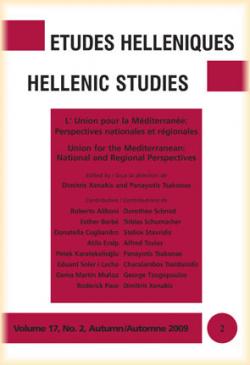The Barcelona Process and its Prospects after the Union for the Mediterranean

This article, illustrates the emerging Euro-Med architecture after the important changes undertaken with the July 2008 Paris Summit and the Conference of Foreign Ministers in Marseille, which configured a multi-layered "Barcelona Process" in which the Union for the Mediterranean is working side by side with the European Neighbourhood Policy and the array of Commission's policies towards the Mediterranean which, in fact, are bound to replace the Euro-Mediterranean Partnership. Providing an evaluation of political and institutional alterations, from the point of view of both Euro-Mediterranean relations and EU foreign and security policy, this article claims that, what we have today is an international organisation of peers, the Union for the Mediterranean, on one side, and the two EU policy frameworks on the other side. The article doubts the ability of the new framework to respond to regional challenges more effectively than the policy couple. It concludes with critical thoughts for the institutional viability and the overall prospects of the Union to contribute to regional conflict resolution as well as to deal with domestic reforms, pointing out that current growing strategic focus on the Gulf and Central Asia and the consequent fragmentation in the Mediterranean requires a Euro-Mediterranean organisation being, at the same time, more flexible inside the Mediterranean basin and more open to the Middle East.
-
Details
in Études helléniques = Hellenic studies, Vol. 17, No. 2 (Autumn/automne 2009), p. 41-55 [Special issue: L'Union pour la Méditerranée: Perspectives nationales et régionales = Union for the Mediterranean: National and regional Perspectives] -
ISBN/ISSN/DOI:
0043-9134


